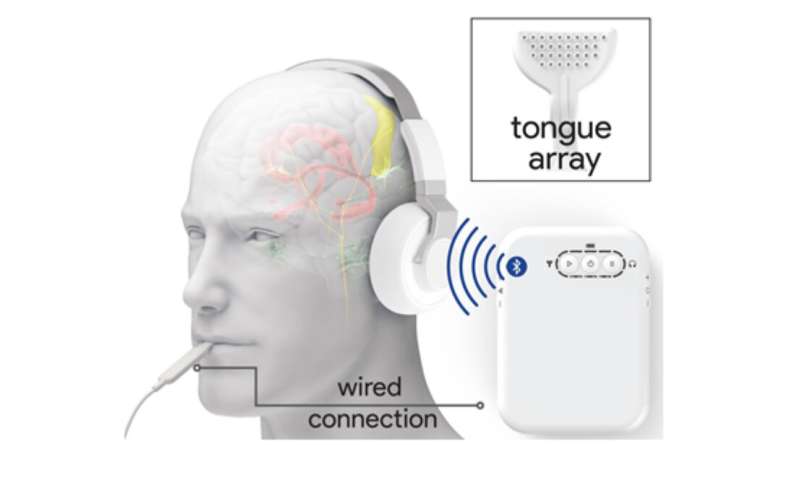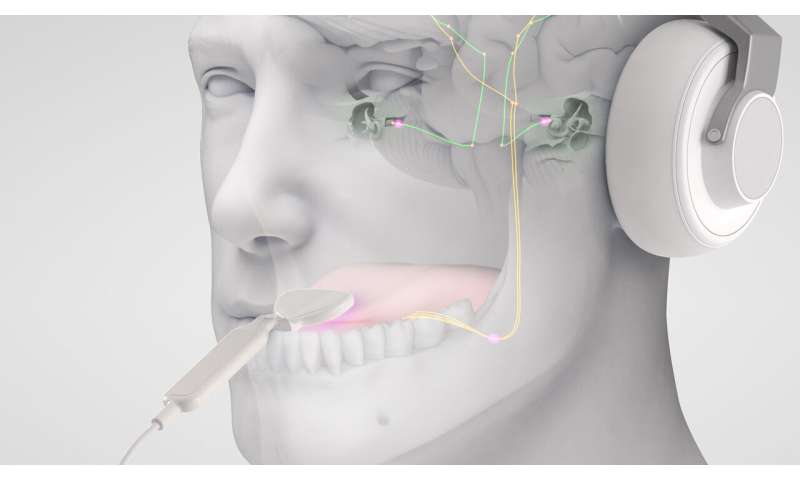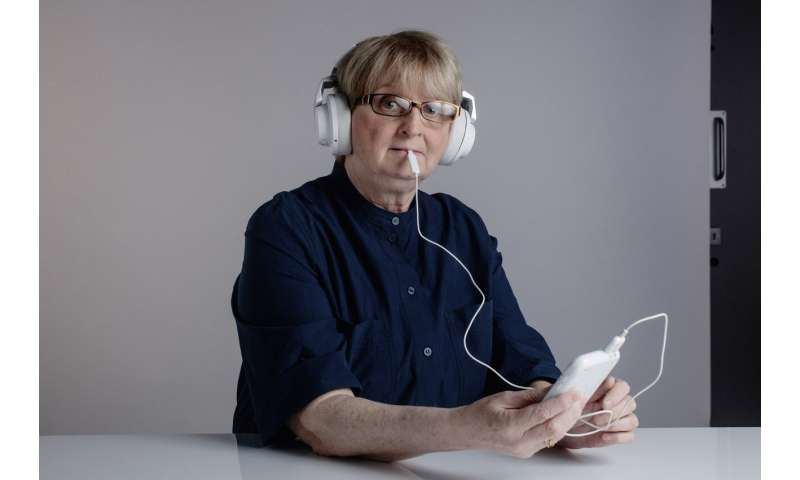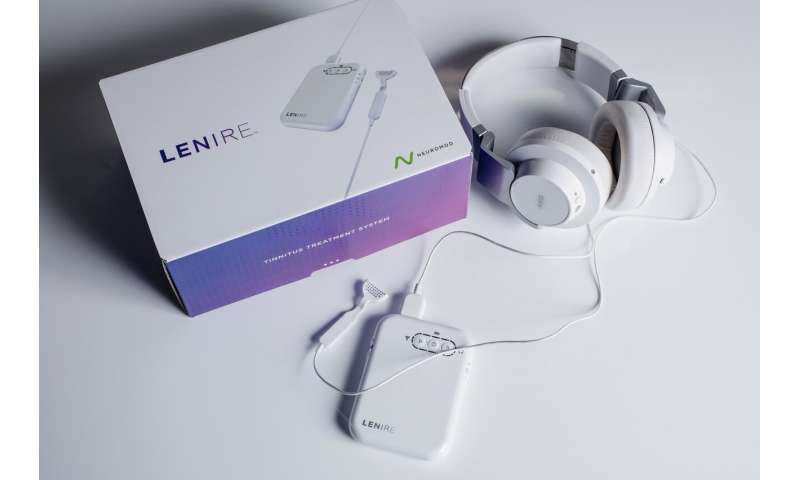
A group of researchers at Neuromod Devices Limited, working with an international team of researchers, reports positive results in a clinical trial set up to test a non-invasive stimulation device to treat tinnitus. In their paper published in the journal Science Translational Medicine, the group describes the science behind the device and how well it worked in clinical trial testing.
Tinnitus is a condition in which a person hears phantom noises—the kind of noise and volume vary between people. The condition is bothersome because of its persistence and because it can inhibit hearing. Over the past several years, several groups have been working on devices to treat or cure the condition, but thus far, have met with limited success. In this new effort, the researchers report that their system, called Lenire, which is a combination of headphones and a tongue stimulator, showed great promise in reducing the amount of phantom noise experienced by people with tinnitus in a dual clinical trial carried out in Ireland and Germany.
The Lenire system consists of a pair of Bluetooth headphones that play sounds that have been engineered to reduce the perception of tinnitus noise and an electrical stimulation device that goes in the mouth. The device in the mouth, which the researchers call the Tonguetip, delivers tiny pulses of electricity to the tongue, which, the researchers explain, forces the brain to redirect attention away from the ears. In the clinical trials, patients were asked to use the device for 60 minutes every day for 12 weeks. Afterward, each of those participating in the trials were given questionnaires to assess whether their symptoms had lessened. Each was also asked to assess their symptoms every few months for a year.
The researchers found that out of 326 patients participating in the trials, 83.7 percent of them fully complied with the protocol—and of those, 66.5 percent reported lessening of tinnitus symptoms up to a year later. The Lenire system has recently been made available to some patients in Ireland and Germany, and Neuromod representatives note that they are currently seeking approval for sale of the device in the U.S.



Source: Read Full Article
